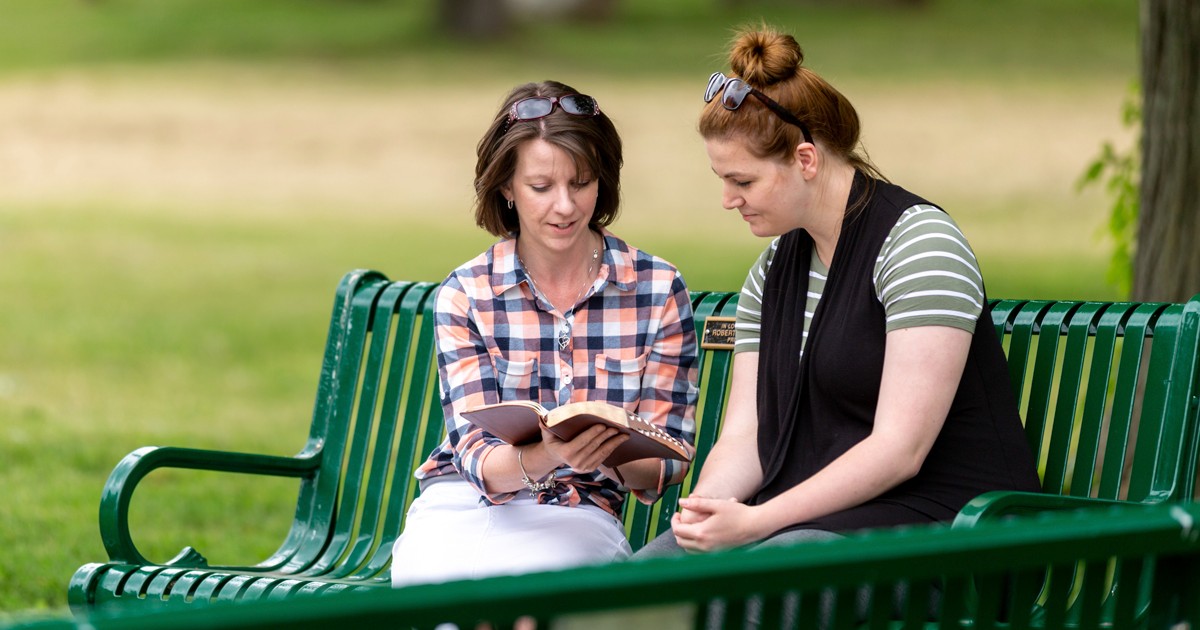Throughout our lives, we benefit from people who come alongside us to give guidance and support. When we want to get in shape physically, we hire a trainer. When we prepare to take a trip to a foreign country, we read travel guides or watch YouTube videos by people who have been there. Similarly, when we want to develop our relationship with God, we can meet with a spiritual director—someone who has “been there” and is trained to walk with us along our faith journeys.
In Spiritual Direction: Wisdom for the Long Walk of Faith, Catholic priest and theologian Henri Nouwen writes, “People who desire a deep and authentic spiritual life often ask for some help.” How do you go about asking for help? How do you find someone with the time, desire and spiritual maturity to meet with you regularly and be willing to listen as you navigate your relationship with God? Here are some of the questions and practical steps to consider in finding a spiritual director.
1. Pray
Although it seems like an obvious first step, surprisingly (or not) many of us are wired to go straight to Google instead of God to search for what we need in life. Instead, take time, over several days or weeks, to ask God to prepare you for a spiritual direction relationship. After asking God to reveal who he wants to work through, sit in silence to sense his direction before taking the next step.
2. Seek
If you have a friend or colleague who meets with a spiritual director, ask if they recommend them. Major Beth Pearo, pastoral services officer at territorial headquarters, can provide you with a list of spiritual directors (beth.pearo@salvationarmy.ca). She can also explain the allowance given to officers for this type of relationship. Whether you’re an officer, employee, Salvationist or friend of The Salvation Army, check out these websites to find a spiritual director:
3. Connect
Once you have someone in mind, send an email with some initial questions:
- Where did you train to become a spiritual director? (They should have some formal training by an accredited institution.)
- Do you have your own spiritual director and supervisor/supervision group? (They should answer yes to both questions.)
- What ethical guidelines do you abide by? (They should be able to provide a document outlining their ethical guidelines.)
- What type of engagement agreement will we establish to clarify roles and responsibilities in our spiritual direction relationship? (They should provide you with a document you both sign to establish the ground rules of the relationship.)
- Would you be willing to offer a free consultation session? (Most spiritual directors and companions offer this.)
If you are comfortable with the answers to these questions, arrange a meeting either in person or online. Some questions you might ask in this meeting are:
- What is your personal experience tending your own prayer, meditation and contemplative life?
- How often do you suggest we meet? (This is totally up to you.)
- How much do you charge for each session? (This can range from $0-$75. Many spiritual directors offer a sliding scale.)
In this meeting, they may invite you to share highlights of your spiritual journey. Think about this before you go. They may also ask what led you to want to meet with a spiritual director and to describe the spiritual disciplines that you currently practise. If there is a crisis or catalyst underlying your desire to meet with a spiritual director, share that in this meeting. Some directors also ask questions about health (both physical and mental). You are never required to answer these; however, they can assist the director in supporting you. Lastly, they may ask you to fill out a contact information form so that they have some basic details about you. This is normal.
As you meet with the spiritual director, ask God to guide you in your selection. Feel free to meet with several directors before choosing to work with one. It’s important that you feel comfortable and able to build a relationship with the person. In addition, remember that this relationship is not necessarily for life. As Anglican spiritual director Leah Postman shares, “Depending on where we are in life and how we may change, we may be companioned by a certain person for only a certain season. Good spiritual direction—on the part of both the director and the directee—pays attention to the movement of the Holy Spirit. God is the definitive spiritual director, and we must rely on God, in the end, to forge our particular spiritual journey.”
ALISON MOORE, DMIN, SD, is the integrated ministries co-ordinator at Scarborough Citadel in Toronto. She also helps others become aware of God’s direction and work in their lives as a spiritual director. For more information or a free introductory spiritual direction session, contact Moore at spiritualdirectionwithalison@ gmail.com.
Photo: Lydia/stock.Adobe.com
It’s important to distinguish between types of companioning relationships. Click on the thumbnail below for a brief overview.
This story is from:











If you live in the Guelph, Ontario area, we have a Spiritual Director on our ministry team. Visit www.guelphsa.ca/spiritualdirection for more info.